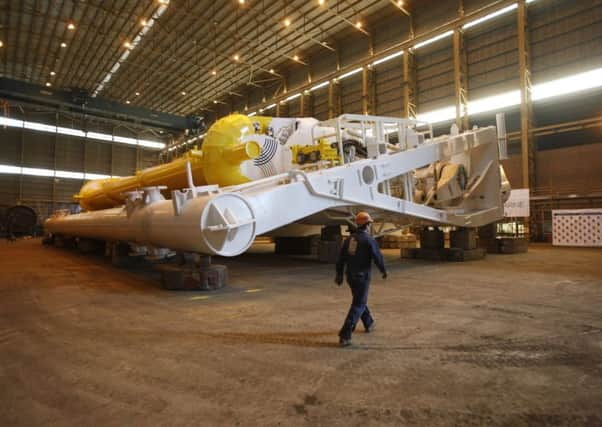Lindsay Roberts: Talented workers make renewables sector great


It’s difficult to reflect on the importance of a motivated, empowered and engaged workforce without sounding glib.
Renewable energy is popularly seen as a recent success story. Even in reality, ours is an industry with around a century of commercialisation in Scotland. The majority of the 21,000 people who work to provide green energy north of the Border don’t have decades of experience. Most aren’t following in their parents’ footsteps because their jobs didn’t exist 20 years ago.
Advertisement
Hide AdAdvertisement
Hide AdThese people, in general, are innovative, adaptable, open to change and, most of all, willing to treat setbacks as learning and work to overcome them.
The Scottish Green Energy Awards, organised by Scottish Renewables for 15 years, has recognised many of those people, as well as the startlingly complex and successful projects they’ve overseen. Without them, renewables wouldn’t now be Scotland’s largest source of power.
Last year, Scottish Renewables launched the Young Professionals Green Energy Awards – a mirror of the larger event, but with only those who have worked in the sector for less than six years able to apply. One of our winners, SSE engineer Sandya Abrar, went on to address the Conference of Youth, the precursor to last December’s UN climate change talks in Paris.
Last year’s winners also included Dr Eve Bird, of Edinburgh start-up Celtic Renewables, for her work in producing the first of a new generation of fuels from whisky industry waste, and Highland Council engineer Jackie Sayer, whose “pioneering and far-sighted approach” to the provision of biomass heating solutions in the Highlands resulted in significant carbon reductions.
Nominations for this year’s event opened last month and we’d encourage anyone to put themselves forward for categories including Communicator, Leader, Achiever, Innovator and Business Development. Entries can be made via bit.ly/YPGEA16.
Renewables is a young industry, and offshore wind is one of its newest sectors – and one which contains some of the brightest brains in the business.
Richard Copeland, nominated for the Leader Award at 2015’s Young Professionals Green Energy Awards and promoted to manager of the Inch Cape offshore wind farm project by Repsol Nuevas Energías UK shortly afterwards, spoke at Scottish Renewables’ Offshore Wind Conference in January, and told how the project’s development was being streamlined by new technology developments.
The sell-out offshore wind event, held in Glasgow for the first time after a move from Aberdeen, highlighted that Scotland is still very much open for business. Conference was clear: 2016 is set to be a huge year for the industry in Scotland. There’s real excitement surrounding the projects set to move into construction, and deep frustration from those still awaiting the opportunity to compete for a revenue support contract. That opportunity should finally present itself towards the end of this year, and the Scottish projects are raring to go.
Advertisement
Hide AdAdvertisement
Hide AdAlso at the event, Baroness Brown of Cambridge, a non-executive director of the UK government’s Glasgow-based Offshore Renewable Energy Catapult, highlighted a lack of research funding as one of the factors holding back offshore wind at a UK level.
Drawing on experience in the automotive and aerospace industries, Baroness Brown – who is also a member of the influential Committee on Climate Change and the UK’s Low Carbon Business Ambassador – said that while wind provided around 30 per cent of the UK’s power in 2016, only a penny in every pound spent by the government on its Research Councils’ Energy Programme goes on improving the technology. The vast majority of the £190 million-a-year pot is spent on research into nuclear power.
Scottish Renewables’ interest in new technology research, as well as the people who make innovation possible, will continue at our Low-Carbon Heat Conference, to be held in Perth in June.
That combination of people, policy and technology is what makes renewable energy such a genuinely exciting place to work.
• Lindsay Roberts is senior policy manager at Scottish Renewables